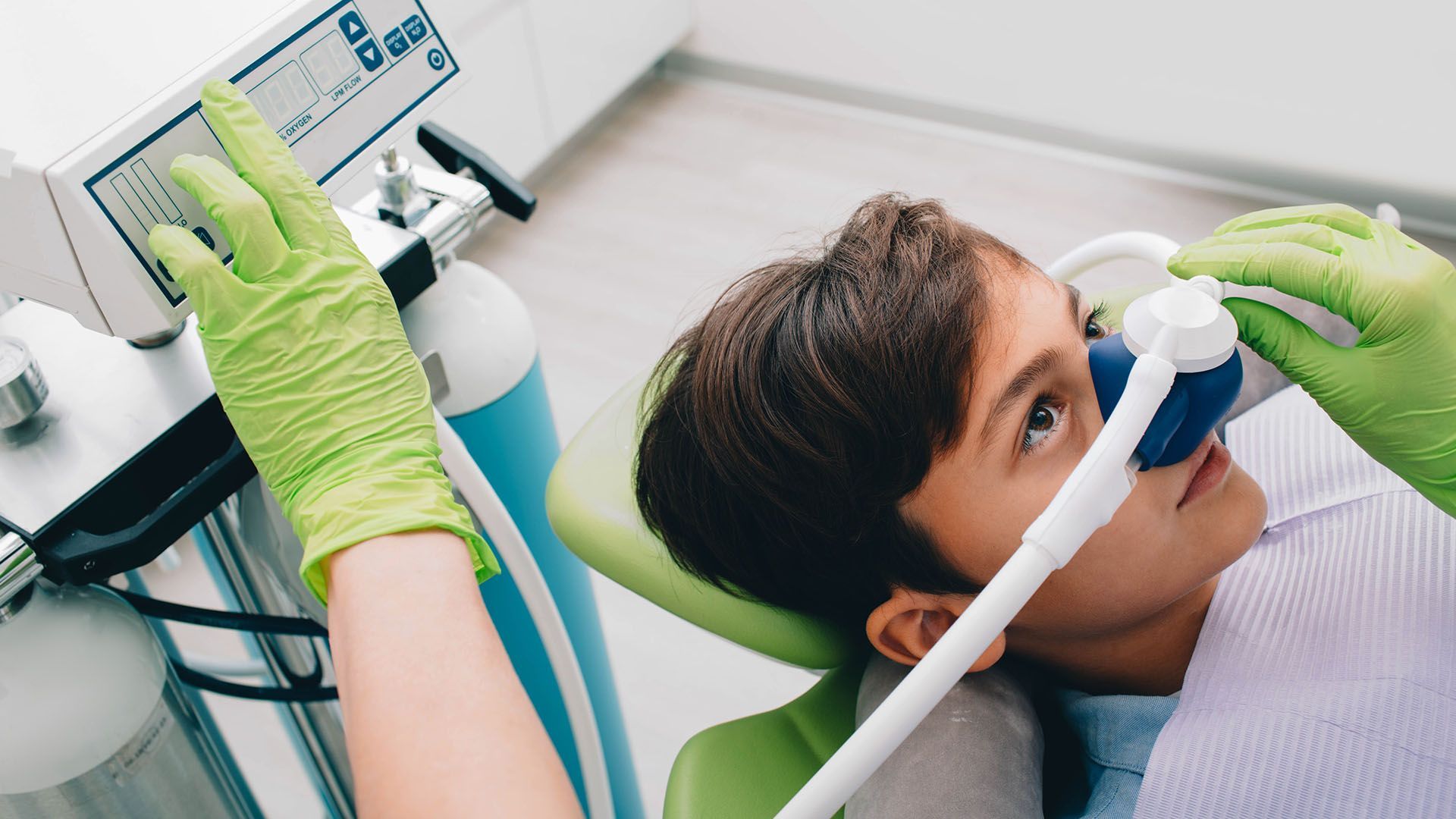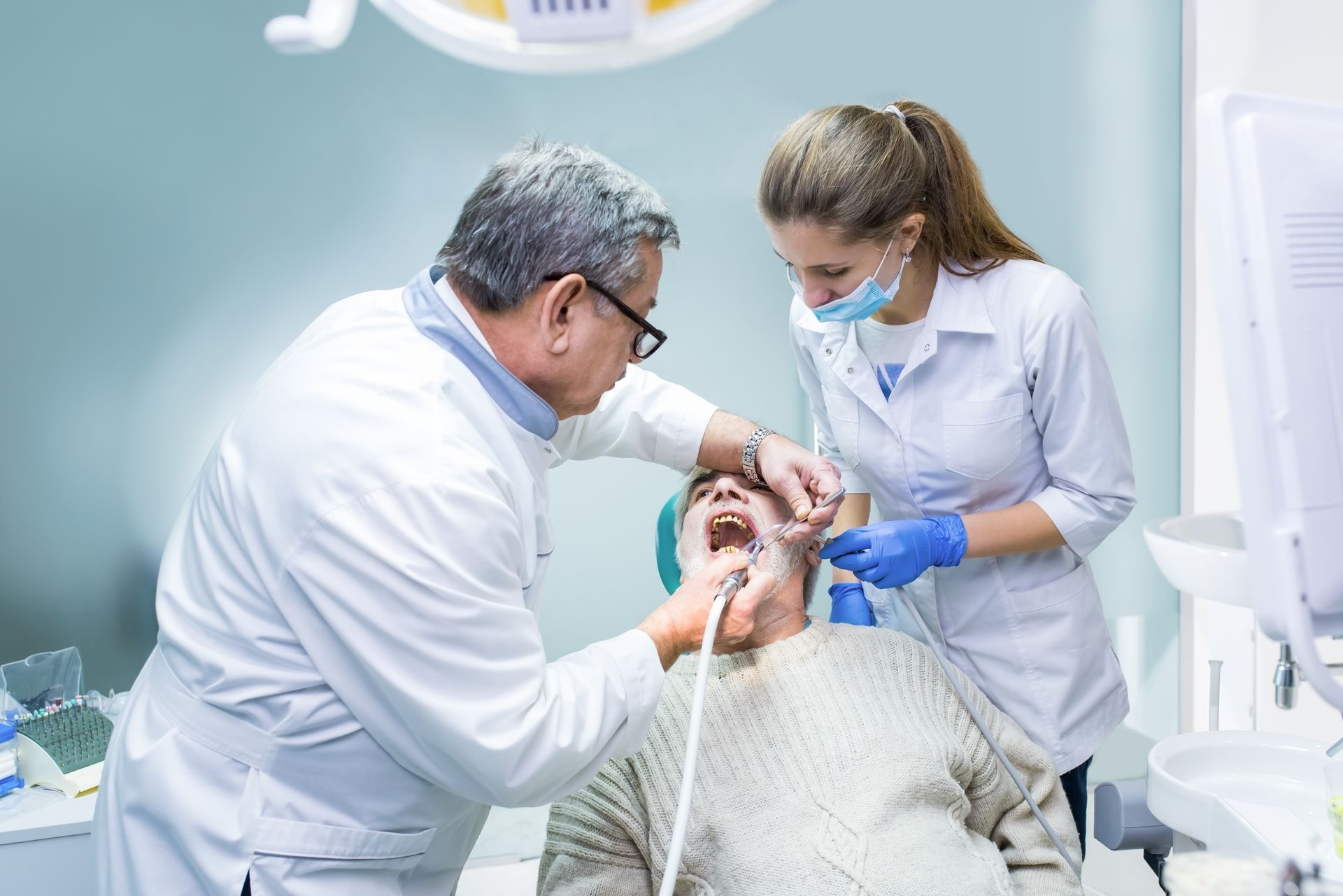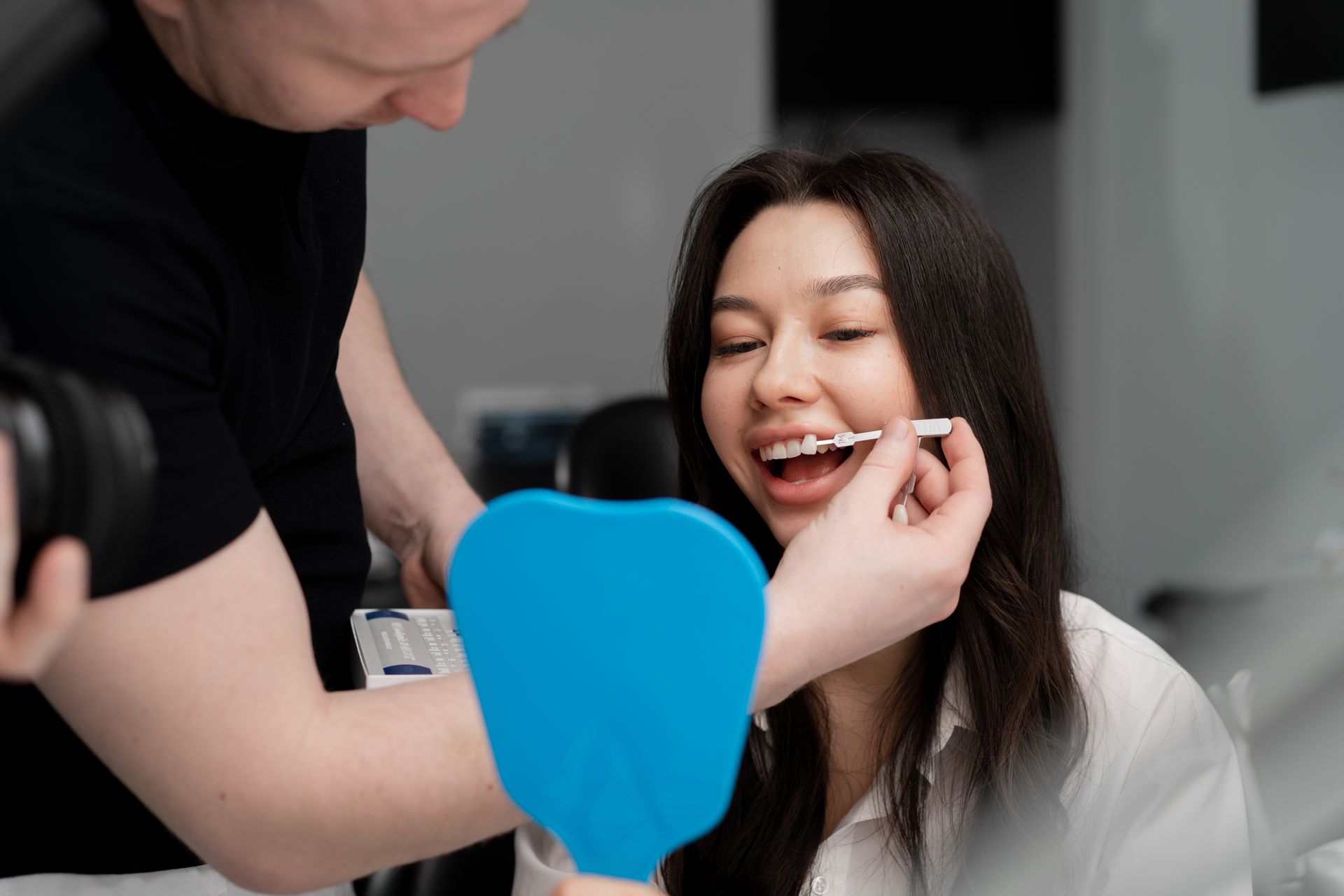Sedation Dentistry in Tukwila: How We Help Anxious Patients Finally Get Care

If the thought of going to the dentist makes your heart race, you are exactly the kind of patient we help every day at West Valley Dental in Tukwila. Our dentist Dr. Kuzi Hsue, has been caring for families in the Tukwila area since 2002 and offers sedation dentistry to make visits calmer and more comfortable. With over 20 years of experience, a focus on family and general dentistry, and a special interest in helping anxious patients, our team knows how to guide you through treatment in a safe, gentle way.
In this guide, we'll explain how sedation dentistry works, who it can help, and what to expect if you choose sedation for your next visit.
You're Not Alone If the Dentist Makes You Nervous
Why dental anxiety is more common than most people think
Feeling anxious about dental care is very common. Many people:
- Worry that treatment will hurt
- Feel tense when they hear dental sounds or smell dental materials
- Get nervous about "bad news" about their teeth
Some studies suggest that as many as 1 in 3 adults feel moderate to strong anxiety about dental visits. That means if you're scared, you are far from alone. Learn more about relieving dental anxiety.
How fear and past bad experiences lead to avoiding care
Many patients who struggle with anxiety have had:
- A painful dental visit in the past
- A dentist who didn't explain what they were doing
- Trouble getting numb with regular injections
- Embarrassment about the condition of their teeth
These experiences can cause people to avoid the dentist for years. Sadly, this usually makes small problems turn into big ones—like cavities becoming infections or broken teeth needing more complex treatment.
Sedation dentistry gives anxious patients a way to finally get the care they need without feeling overwhelmed.

What Is Sedation Dentistry, Exactly?
The difference between sedation and regular numbing (local anesthetic)
Regular numbing, also called local anesthesia, blocks pain in the area being treated. You stay fully awake and aware, but your teeth and gums feel numb.
Sedation is different. Sedation uses medication to help you feel relaxed, calm, and sometimes drowsy during your visit. You still receive local anesthesia so that you don't feel pain, but sedation helps your mind and body stay at ease while we work.
Think of it this way:
- Local anesthetic: stops pain in one area
- Sedation: calms your whole body and reduces fear
Who sedation dentistry can help: anxious patients, strong gag reflex, complex treatment needs
Sedation isn't only for people who are "terrified" of the dentist. It can help in many situations, such as:
- Patients with strong dental anxiety or phobia
- People who have a sensitive gag reflex
- Patients who have trouble sitting still due to pain or medical conditions
- Those who need several procedures done in one longer visit
- Patients who have had trouble getting numb in the past
- Individuals with special needs who find dental care overwhelming
If any of these sound like you, sedation dentistry may make your visits much easier.
Sedation Options a Tukwila Dentist May Offer
Nitrous oxide ("laughing gas") for lighter, in-and-out relaxation
Nitrous oxide, often called "laughing gas," is one of the most common forms of dental sedation. You breathe it through a small mask over your nose.
- It starts working within a few minutes
- You feel light, relaxed, and less aware of your worries
- You stay awake and can respond to the dentist
- Once the gas is turned off, it wears off quickly
Most people can drive themselves home after nitrous oxide because it leaves your system so fast. It's a great option for mild to moderate anxiety or shorter appointments.
Oral conscious sedation for deeper calm during longer or more involved visits
Oral conscious sedation usually involves taking a prescription pill before your appointment. By the time you're in the chair, you feel very calm and may even feel like you're drifting in and out of light sleep.
With oral sedation:
- You remain conscious but deeply relaxed
- Time may feel like it passes quickly
- You may remember little of the appointment afterward
Because this type of sedation is stronger, you'll need a trusted adult to drive you to and from the office and stay with you for a while afterward.
Comfort-focused extras: blankets, music, and a slow, gentle pace
Medication is only one part of a good sedation experience. A calm environment matters just as much. At a patient-centered Tukwila dental office like ours, you can expect:
- Cozy blankets or neck pillows
- Headphones or music to drown out sounds
- Clear, simple explanations before anything is done
- Lots of chances to ask questions
- A slow, gentle pace so you never feel rushed
All these details work together with sedation to create a truly stress-free visit.
Is Sedation Dentistry Safe?
Reviewing your medical history, medications, and anxiety level beforehand
Safety comes first. Before recommending sedation, your dentist will review:
- Your medical history and any conditions you have
- All medications and supplements you take
- Any past reactions to anesthesia or sedation
- How anxious you feel about treatment
This helps us choose the right type and level of sedation for you—or decide together if sedation isn't a good fit.
How we monitor you throughout your visit
During your visit, our team keeps a close eye on you. We typically monitor:
- Your breathing
- Your heart rate and blood pressure
- Your level of responsiveness
We also stay in constant communication, checking in with you often and adjusting as needed so you remain comfortable.
Why choosing a trained sedation dentist in Tukwila matters
Sedation should only be done by dentists who are properly trained and who use well-tested, approved medications. Choosing an experienced Tukwila sedation dentist with many years of clinical practice gives you extra peace of mind that you're in safe hands.
What a Sedation Visit Looks Like from Start to Finish
The initial consultation: sharing your fears, goals, and health history
Your sedation journey starts with a conversation, not a procedure. At your first visit, we will:
- Listen carefully to your fears and past experiences
- Talk through your dental goals and what you'd like to fix
- Review your health history and current medications
- Explain which sedation options may be right for you
This visit is your chance to be completely honest. There is no judgment—only solutions.
Day-of appointment: when to arrive, what to expect before sedation, and how the visit feels
On the day of your sedation appointment:
- You'll follow any instructions we gave you (like fasting or taking a pill at a certain time)
- When you arrive, we'll review what will happen and answer last-minute questions
- We'll start your chosen type of sedation and wait until you feel relaxed before beginning treatment
Most patients say the visit feels shorter than it really is. Many report remembering only bits and pieces afterward, which can be a big relief for anxious patients.
Aftercare and recovery: going home safely and what to do the rest of the day
After your treatment:
- We'll make sure you're stable and comfortable before you leave
- If you had stronger sedation, your driver will take you home
- You'll get clear written instructions about eating, drinking, and medications
- Plan to rest for the rest of the day and avoid important decisions or operating machinery
By the next day, most people feel back to normal—just with more dental work done and less stress than they expected.
Sedation Dentistry for Different Types of Patients
Adults who haven't seen a dentist in years because of fear or embarrassment
If it's been many years since your last checkup, you might feel ashamed or worried about what we'll think. Please know: we see patients in this situation all the time. Sedation gives you a way to come back without feeling judged or overwhelmed, even if you need a lot of work. If you're feeling embarrassed about your smile, we can help.
Patients with a strong gag reflex, difficulty sitting still, or special needs
Some people avoid the dentist because:
- Their gag reflex is so strong that impressions or X-rays are hard
- Chronic pain or conditions like ADHD make sitting still difficult
- They or their loved ones have special needs that make dental visits stressful
Sedation can relax muscles, reduce over-sensitivity, and make it easier to complete the care you need safely.
Using sedation to complete more treatment in fewer, longer appointments
If you need several fillings, crowns, or other treatments, sedation can allow your dentist to do more work in a single visit. This can mean:
- Fewer trips to the office
- Less time away from work or family
- A faster path to a healthy, comfortable smile
For patients needing extensive work, sedation can be especially helpful for procedures like dental implants or full mouth reconstruction.
Myths About Sedation Dentistry (And the Truth)
"I'll be completely unconscious" vs. what most dental sedation really feels like
Many people think sedation means being "put to sleep." In most dental offices, that's not the case. With common options like nitrous oxide or oral conscious sedation, you're still awake enough to respond, but you feel deeply relaxed and worry-free.
"Sedation is only for major surgery" and why that's not true
You don't need to be having oral surgery to benefit from sedation. It can be used for:
- Cleanings and exams for very anxious patients
- Fillings, crowns, or root canals
- Multiple procedures in one visit
If anxiety is stopping you from getting care, sedation is a valid option—even for routine work.
"It's too expensive" — looking at cost compared to delaying needed care
Sedation does add some cost to your visit, but delaying treatment can end up costing much more. Ignoring problems now can lead to:
- Larger cavities that need root canals or
extractions
- Gum disease that becomes harder to treat
- Infections and emergency visits
When you compare these long-term costs, sedation that allows you to get needed care often pays for itself in better health and fewer major procedures down the road.
How We Help Anxious Patients Finally Get Care in Tukwila
Creating a no-judgment space where you can be honest about your fears
At West Valley Dental, we understand that dental fear is real. We never shame you for feeling nervous or for waiting too long between visits. Instead, we invite you to talk openly so we can tailor your visit around your needs.
Building a step-by-step plan so you never feel rushed or surprised
Together, we'll create a simple plan that may include:
- A "getting to know you" visit with no treatment at all
- Shorter, easier appointments at first
- Sedation for longer or more complex visits
We explain each step before we do anything, so you always know what's coming next.
Combining gentle techniques, clear communication, and sedation to rebuild trust
Our goal is not just to get you through one appointment. We want to help you rebuild trust in dental care. By using:
- Gentle techniques
- Calm, clear explanations
- The right level of sedation for your comfort
we can help you move from fear and avoidance to confidence and routine care.
Ready for a Calmer Dental Experience?
What to share when you call (your worries, your goals, your medical info)
When you contact our Tukwila office, it helps to share:
- What makes you most nervous about dental visits
- How long it's been since your last appointment
- Any medical conditions or medications you have
- What you hope to fix first (pain, broken teeth, cosmetic concerns, etc.)
This information helps us prepare for your visit and choose the safest, most effective sedation options.
How to schedule a sedation consultation with a Tukwila dentist
If you're ready to talk about sedation dentistry, you can request an appointment through our website. Our office is conveniently located at 15668 W Valley Hwy, Tukwila, WA 98188, making us easy to reach from Seattle, Renton, Kent, and nearby communities.
Encouragement to take the first small step toward stress-free dental care
You don't have to force yourself through another fearful dental visit—or keep avoiding care altogether. Sedation dentistry can give you a calmer, more comfortable experience and help you finally get the healthy smile you deserve.
Take the first small step today. Reach out, share your worries, and let our Tukwila sedation dentist guide you toward truly stress-free dental care.

Frequently Asked Questions About Sedation Dentistry
Will I remember anything from my sedation dentistry appointment?
It depends on the type of sedation used. With nitrous oxide (laughing gas), you'll remain aware and remember the appointment, though you'll feel relaxed and less anxious. With oral conscious sedation, many patients report having little to no memory of the procedure—time often feels like it passed in just minutes, even if you were in the chair for hours. This "amnesic" effect is actually one of the benefits for anxious patients, as it means you won't retain memories of sounds, sensations, or procedures that might otherwise cause distress.
How much does sedation dentistry cost, and will my insurance cover it?
Sedation costs vary based on the type and length of your appointment. Nitrous oxide is typically the most affordable option (often $75-$200), while oral conscious sedation may cost $250-$500 or more. Some dental insurance plans cover sedation if it's deemed medically necessary (such as for patients with severe anxiety, special needs, or certain medical conditions), but many plans consider it elective. Our team at West Valley Dental can verify your specific coverage and discuss payment options, including financing plans that can make sedation more accessible.
Can I drive myself home after sedation dentistry?
After nitrous oxide, yes—it wears off within minutes, and you can safely drive yourself home and resume normal activities immediately. However, after oral conscious sedation, you absolutely cannot drive. You'll need a responsible adult to drive you to the appointment, wait during your procedure (or return to pick you up), and stay with you for several hours afterward. Plan to take the rest of the day off to rest, and avoid making important decisions, signing documents, or operating machinery until the next day.
Is sedation dentistry safe for someone with medical conditions or who takes medications?
Sedation can be safe for most patients, but certain medical conditions (like severe respiratory problems, some heart conditions, or sleep apnea) and medications may require extra precautions or make certain types of sedation inadvisable. This is why we thoroughly review your complete medical history, current medications, and any allergies before recommending sedation. Always be completely honest about your health status—even things that seem unrelated. Dr. Hsue's experience and careful monitoring protocols ensure we choose the safest approach for your specific situation, and we'll consult with your physician if needed.
What if I've avoided the dentist for so long that I'm embarrassed about the condition of my teeth?
First, please know that you're not alone—we regularly see patients who haven't visited a dentist in 5, 10, even 20+ years because of fear, embarrassment, or both. There is absolutely no judgment in our office. Dr. Hsue and our team are focused on solutions, not shame. Sedation dentistry is actually ideal for patients in your situation because it allows us to address multiple issues in fewer appointments while keeping you comfortable and calm throughout. Many patients tell us that sedation was the key that finally allowed them to get the care they'd been putting off for years. Your first visit is simply a conversation—we'll listen, develop a plan together, and help you take that first step without pressure or criticism.






